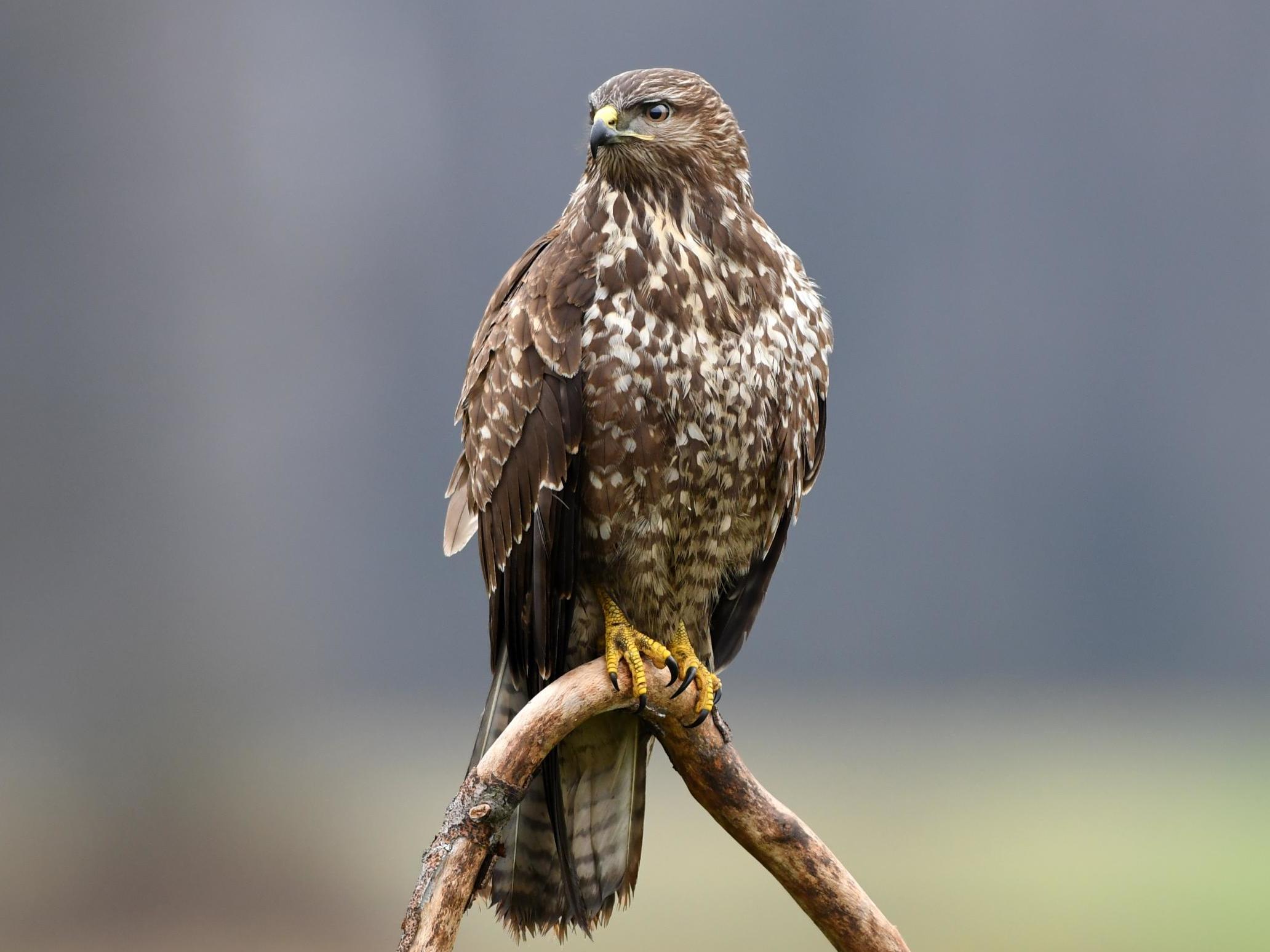Illegal killings of Scottish birds of prey doubles in a year
In 2018 there was a total of 87 incidents in the UK and only one resulted in a prosecution, charity says

Illegal killings of birds of prey in Scotland has more than doubled in a year and all of the incidents happened on or near land used for driven grouse shooting, according to the Royal Society for the Protection of Birds (RSPB).
The charity's Birdcrime report found there were at least 12 incidents in 201, up from five the previous year.
A peregrine poisoned in the Pentland Hills; a buzzard found to have been shot twice in South Lanarkshire; a buzzard caught in an illegal trap in Inverness-shire, and a hen harrier caught in a spring trap in Perthshire, were among the recorded incidents.
There was a total of 87 in the UK in 2018.
The charity is now calling on the Scottish Government to introduce licensing on the issue. Duncan Orr-Ewing, head of species and land management at RSPB Scotland, said: “Birds of prey are an integral part of Scotland’s heritage, woven into our landscapes and our history.
The UK's top birds 2018
Show all 10“We have international obligations to protect these birds. There is widespread revulsion amongst the Scottish public that these birds continue to suffer greatly at the hands of wildlife criminals. Our published data from Birdcrime 2018 shows that this damage is both current and significant, and reinforces why robust regulation of driven grouse shooting is urgently needed.”
Grouse moor estates are increasingly drawing criticism for their effect on native wildlife and climate change, with many calling for shoots to be banned.
This latest report comes just weeks after a Channel 4 report suggested hundreds of animals, including weasels, badgers, goshawks and buzzards were being killed on grouse moors.
“The Scottish Government has led the way in the UK by commissioning an independent review into the impacts of driven grouse shooting,” said Mr Orr-Ewing. “This is a seminal moment and a chance for Scottish Government to tackle raptor crime by bringing grouse moor management under regulation, and giving greater recognition to the public interest in the way such sporting estates are managed.
“Sanctions to remove licences to shoot should be available to act as a strong deterrent to those who currently break wildlife protection laws, and engage in other damaging land management practices."
In England, there were 67 recorded incidents – with just five in Wales and three in Northern Ireland.
Of the 87 in 2018’s report, only one has resulted in a prosecution – with only one prosecution from 68 recorded incidents in 2017.
The figures do not include incidents where no bodies were recovered, however, with RSPB Scotland referencing a number of cases of satellite-tagged birds going missing in suspicious circumstances.
A Scottish Gamekeepers Association spokesman said the group would “await the official independent statistics from Scottish Government”, lamenting how the RSPB’s “unofficial report each year gets overtaken by the official figures approved by the relevant agencies.
He added: “We have been pleased to see the official statistics showing an establish pattern of year on year decline in raptor poisoning in Scotland, including the lowest figures ever recorded, in last year’s Government statement. The SGA has a proven stance against wildlife crime, removing eight members in seven years for wildlife crime convictions. We do not condone raptor crime.
“We disagree with RSPB regarding Muirburn (Code) and their views on mountain hares, which stem from a study which has since been scientifically proven to have utilised the least reliable count method available. Until independent agencies monitor satellite tags, which the SGA is petitioning Parliament for currently, we regard RSPB’s claims regarding satellite tags as speculative and lacking in verifiable evidence.”
Additional reporting by PA
Subscribe to Independent Premium to bookmark this article
Want to bookmark your favourite articles and stories to read or reference later? Start your Independent Premium subscription today.

Join our commenting forum
Join thought-provoking conversations, follow other Independent readers and see their replies